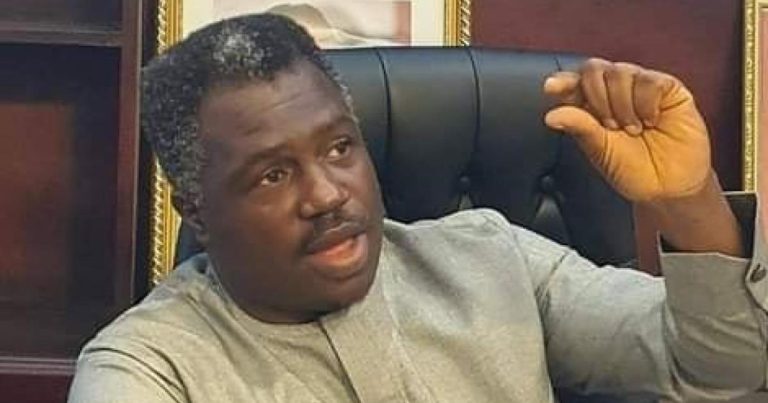accessibility,2,activists,4,actors and actresses,5,adventures,1,advertising,1,aerospace and aeronautical engineering,1,aerospace industry,1,africa,75,africans,1,aging,3,agriculture,17,ai chatbots,3,air travel,8,airline industry,9,aliens,1,alternative energy,3,alzheimer's disease,1,ambassador,2,ancient egypt,1,ancient history,2,angelina jolie,1,animal behavior,1,animals,9,antitrust activities,1,antitrust law,2,apple,3,apple products and services,2,archaeologists,1,archaeology,2,architectural design,1,architecture,1,armed forces,24,armenia,1,arrests,4,arsenal fc,1,art,4,artificial intelligence,49,artwork,4,asia,10,astrologers,1,astrology,1,astronomy,2,astrophysics,1,asylum seekers,3,athletes,7,auctions,1,audio,1,audits,1,austria,1,automation,15,automotive industry,12,autos,14,aviation,12,aviation accidents,7,babies,4,bags,1,banking,6,batteries,2,battery charging,2,battery electric vehicles,10,bears,1,beauty,2,beauty pageants,1,biodiversity,1,biographical films,1,biology,3,biometrics,1,biotech & biomedical,3,biotechnology,1,blockchain,1,boats and ships,3,bollywood,1,books,7,border crossings,1,border security,1,borders,1,box office grosses,1,brain cancer,1,brain health,1,breaking news,3,breast cancer,1,breast cancer awareness,1,british monarchy,2,british royal family,3,broadband,1,broadcast media,8,broadcasting,6,budgets,4,buildings,3,business,351,business & finance,1,business funding,1,cadillac,1,cambodia,1,cancer,4,cancer patients,1,capital gains,1,capital punishment,1,car companies,9,car design,3,car models,1,carbon emissions,1,cardi b,1,cars,22,catholic churches,1,catholic schools,1,catholicism,1,celebrations,1,celebrities,56,celebrity and music,11,celebrity gossip,40,central banks,3,challenges,3,character and personality,1,charities,3,charity,3,chatgpt,1,children,24,children and families,21,chili,1,christian ministry,1,chronic conditions and diseases,1,churches,3,cities and towns,3,civil aviation,4,climate,3,climate change,8,climatology,1,clinical trials,1,cloud computing,2,cloud services,2,coca cola,1,cold weather,2,colleges and universities,12,commerce,70,community,36,compassion,2,complaints,1,computer engineering,1,computer security,1,computers,4,concerts,5,congestion,1,conservation,2,construction,5,consumer electronics,5,contests and competitions,4,controversies,127,cooking,3,corruption,11,cosmology,1,cost of living,3,councils,2,counterfeiting,1,couples,4,courts,46,covid 19,5,crabs,1,cricket,4,cricket players,4,crime,183,crimes,50,criminal cases,46,criminal justice,30,criminal law,3,criminal prosecution,6,crops,4,crude oil,1,cryptocurrency,3,cryptocurrency exchanges,1,culinary arts,1,culture,48,customs,1,cybercrime,6,cybersecurity,3,data breaches,1,data centers,3,data science and analytics,1,dating and relationships,1,dating apps,1,debt,3,deep learning,1,dementia,1,democracy,2,demolition,1,detention,1,diabetes,1,diet and nutrition,3,dining,1,dining out,1,diplomacy and diplomats,11,disability,3,disaster management,10,disaster preparedness,1,disasters,56,disney+,1,distilled beverages,1,diversity,1,divorce,3,dog breeds,1,dog lovers,1,dog owners,1,dogs,3,domestic violence and abuse,1,donald trump,8,donald trump trial,1,drama,1,drivers,1,driving,7,droughts,2,drugs,4,e commerce,1,earnings,1,earth science,1,earthquakes,5,ecology,2,economic inequality,5,economic policy,16,economics,65,economy of china,5,education,86,education reform,1,educational systems,26,educators,3,egypt,1,egypt history,1,egyptology,1,election commission of india,5,elections,12,electric batteries,2,electric bikes,1,electric cars,10,electric power,16,electronics,2,emergencies,25,emergency management,12,emergency services,2,employees,2,employment,7,employment law,1,empowerment,1,energy sector,17,energy sustainability,2,engineering,9,engineers,1,entertainment,50,entertainment industry,8,entrepreneurship,5,environment,1,environmental disasters,9,environmental friendliness,1,environmental health,3,environmental pollution,2,environmental science,2,environmentalism,18,equities,1,europe,11,european football,3,european parliament,1,european union,3,event tickets,1,events and festivals,16,everyday life tips and hacks,1,eviction law,1,evictions,2,exercise,1,exhibitions,6,exports,1,extortion,1,extraterrestrial,1,factory reset,1,faith,1,faith and religion,2,family relationships and dynamics,2,farmers,2,farming,9,farming sector,2,fashion & style,6,fashion and style,5,fashion brands,1,fashion design,1,fashion industry,1,fashion trends,2,father child relationship,1,fbi,1,federal government,1,federal reserve,1,female empowerment,8,fertility,2,festivals,3,fighting,3,film festivals,3,finance news,12,financial analysis,1,financial crime,2,financial literacy,1,financial markets,16,financial services,14,fintech,6,fire,3,fiscal policy,4,fish,3,fisheries,3,fishing,2,fitness,2,flights,7,flooding,12,flying,12,food and beverage industry,2,food and drink,15,food banks,1,food culture,5,food safety,3,food service industry,2,foodies,2,football clubs,17,football players,4,ford motor company,1,forecasting,2,foreign policy,22,foreign relations of iran,2,foreign relations of pakistan,1,formula 1,13,fossil fuels,1,fraud prevention,2,french,10,funding,3,funeral services,1,funerals,4,future of cryptocurrencies,1,gadgets,3,gambling,1,gaming,1,gas stoves,1,gaza israel conflict,9,gender,3,genetic disorders and diseases,1,genetic testing,1,genetics and heredity,1,geology,1,german,7,ghana,5,global economy,2,global warming,4,gold,1,golf,3,golf courses,1,golf players,1,golfers,1,google,1,google chrome,1,google products and services,3,government,504,government of california,1,government of pakistan,3,government of russia,1,government regulations,22,governors,8,graduations,1,grief,9,guinness world records,1,hamilton,1,handbags and purses,1,hate crimes,1,health,61,health & fitness,3,health advice,1,health and exercise,5,health and healthcare economics,5,health benefits,1,health risks,1,health tips,1,healthcare and medicine,81,healthcare industry,2,healthy eating,1,healthy living,2,healthy workouts,1,heat,1,heating,1,heritage,7,heroism,1,higher education,22,highways,1,history,5,holocaust survivors,1,home and property,12,hong kong,4,horology,1,horoscopes,1,horror,1,hospitals,5,hotels,1,human rights,45,human trafficking,3,humanitarian aid,11,humanitarianism,13,hurricanes,3,hydrogen,1,hyundai,1,identity verification,1,illness,19,immigrants,1,immigration,9,immigration policy,4,in vitro fertilization,1,incident,72,india elections,1,indian national news,17,indigenous,1,infectious diseases,17,inflation,7,influencers,2,information security,6,infrared light,1,infrastructure,20,innovation,39,insects,2,insurance,1,interest rates,1,international cricket,2,international economics,3,international news,3,international relations,48,international space station,1,international trade,5,internet culture,1,internet data centers,2,internet infrastructure,1,internet security,3,investing,34,investing business news,30,investing company news,34,investing economy,5,investing market news,11,investing technology,5,investing news,13,investors,18,ios,1,iphone,3,iran,2,iran and the middle east,1,iran nuclear deal,2,islam,3,israel and the gaza strip,9,israel and the middle east,6,italy,1,japan national news,3,jeep,1,jeffrey epstein,3,jewelry industry,1,job,1,jobs and careers,5,johnson & johnson,1,journalism,62,journalists,7,judges,1,judiciaries,26,kanye west,1,kardashians,2,kenya,2,kidnapping,4,kim jong un,1,korea national news,3,korean,15,labor unions,3,laws and regulations,34,layoffs,1,leadership,11,licenses,1,licensing,2,life expectancy,1,life insurance,1,life sciences,1,lifestyle,6,literacy,5,lithium,1,live music,2,liverpool f.c.,1,living,3,loans,2,local and municipal government,5,local businesses,1,local news,100,love,2,luxury cars,1,luxury goods and services,1,luxury watches,3,machine learning,19,machinery,1,macroeconomics policy,3,mail,1,manchester city f.c.,1,manchester united,1,manufacturing,18,marriage,8,massacres,1,maternity,2,mathematics,1,meals,1,measles,1,medical and healthcare costs,3,medical conditions and diseases,7,medicine and healthcare,59,meghan markle,2,memes,1,mental health,4,mental illness,1,mentors and mentoring,1,metal,1,metal detecting,1,metals,3,meteorology,10,microorganisms,1,migrants,5,military,72,military aircraft,1,military history and wars,2,military technology,3,mineralogy,1,mining,7,mining industry,2,misinformation,2,missing people,1,missing persons,2,mixed martial arts (mma),2,mma,2,mobile phones,5,mobile technology,13,modern warfare,2,money,34,morocco,4,motor bikes,11,motor fuel,1,motorcycle racing,3,motorcycle riding,9,motorsports,31,mountains,2,movies,12,multilingualism,2,murder,1,murder cases,3,music,23,music and lyrics,8,music industry,6,music recording,1,musicians,6,mysteries and investigations,1,nasa,1,national health service,1,national security,13,nato,2,natural disasters,15,natural gas,2,nature,1,nature conservation,2,naval forces,2,nba,1,network security,1,news,1684,news media,161,nfl,1,nigeria,34,north korea,2,nuclear energy,4,nuclear power plants,4,nuclear program of iran,1,nuclear reactors,4,nutrition,1,obituaries,11,off roading,1,oil,9,oil and fuel prices,2,oil and gas industry,6,oil refineries,1,olympic sports,2,oncology,1,online scams,1,outages,2,packing tips,1,pageants,2,pakistan,4,palestine,4,palestinians,3,parasitology,1,parenting,2,parking lots,1,parkinson's disease,1,partnership,1,passports and international travel,3,payment processing,2,payroll,1,performing arts,4,pests and diseases,1,petroleum,4,pets,1,pfizer,1,philanthropy,2,pilots,1,planetary science,1,planning,7,poland,1,police and law enforcement,33,police reports,39,political asylum,1,political corruption,3,political debates,11,political parties,8,political polling,1,political science,4,politics,789,politics and government,513,politics and law,382,politics of japan,5,politics of saudi arabia,1,politics of south korea,6,pop culture,2,pop music,1,popular culture,17,porsche,1,postal and shipping services,1,postal service,1,poverty,2,power outages,1,pregnancy,2,premier league,1,prince harry duke of sussex,1,product recalls,1,product reviews,2,pronunciation,1,prostate cancer,1,protests,8,psychology,1,psychology of everyday life,1,public education,10,public health,28,public health and safety,8,public policy,51,public transportation,2,rabies,1,racing,27,racing drivers,7,racism,1,radiation,1,railroads,2,railway systems,3,rain,4,rainfall,7,rats,1,real estate,11,real estate market,6,reality television,1,recreation and leisure activities,1,recycling,1,red bull,2,red bull racing,3,refrigeration,1,refugees,8,regulation,6,relationships,10,religion,14,renewable energy,5,rent,1,rental property,1,resignations,1,respiratory illnesses and diseases,1,restaurants,2,retail,3,rice,1,roads,1,robotics,4,rodents,1,roman catholic church,4,romania,3,rules and regulations,5,rumors,1,russia ukraine conflict,11,russian,3,russian politics,5,safety,19,samsung,1,samsung products,1,satellites,1,saudi arabia,1,scandals,17,scholarships and fellowships,1,school children,4,school principals,1,school teachers,2,schools,26,science,19,science education,2,scientific research,7,scotland,6,seafood,1,search and rescue,3,securities,1,security,21,security breach,1,seismology,2,self driving technology,2,senior citizens,6,sentencing,2,severe weather,6,shopping,1,shortages,3,singapore,4,skills,3,sleep advice,1,smart devices,1,smartphones,3,smuggling,1,soccer,22,soccer player transfers,2,social issues,21,social justice,1,social media,6,social security,1,society,15,sodas,1,software & apps,1,software and applications,5,solar energy,1,solar panels,1,soldiers,3,south africa,2,space exploration,2,space stations,1,space travel,2,special education,1,speeding,1,spirituality,3,sports,81,sports betting,1,sports injuries,1,startups,1,startups and entrepreneurship,1,state of palestine,4,stem education,1,stocks,11,storms,3,streaming,1,style,4,subaru,1,surgery,1,sustainability,7,suvs,1,sweeteners,1,syria,2,taiwan,2,taliban,1,tattoos,2,taxes,3,taylor swift,1,teachers,3,teaching,12,tech companies,3,technology,284,technology companies,12,technology industry,36,technology trends,38,telecommunications,5,television,2,temperature,3,tenants,2,tennis,1,tesla,1,tesla autopilot,2,the big bang theory,1,the holocaust,1,theft,1,tipping,1,tourist attractions,3,tourists,2,tournaments,7,track and field,3,traditions,1,traffic congestion,1,tragedies,46,train travel,1,trains,1,transportation,12,trauma,5,travel,11,travel destinations,3,treasure hunt,1,treasures,1,tropical storms,2,trump administration,3,tuna,1,tv,4,u.s. china relations,2,uber,1,ufc,1,ufo sightings,1,uganda,8,uk economy,3,uk national news,7,uk politics,4,uk railways,1,ukraine,18,





COMMENTS